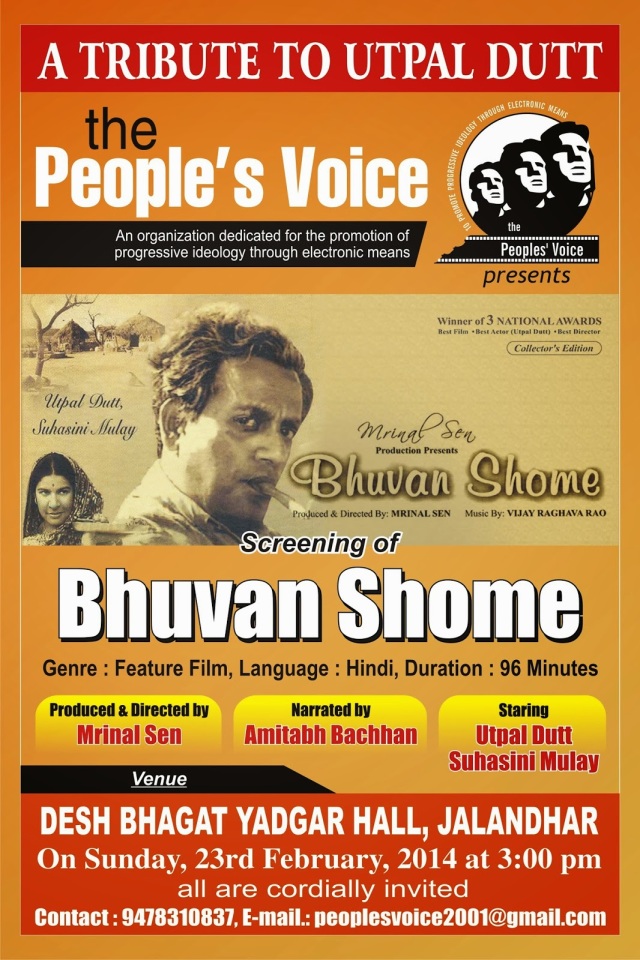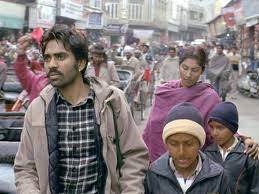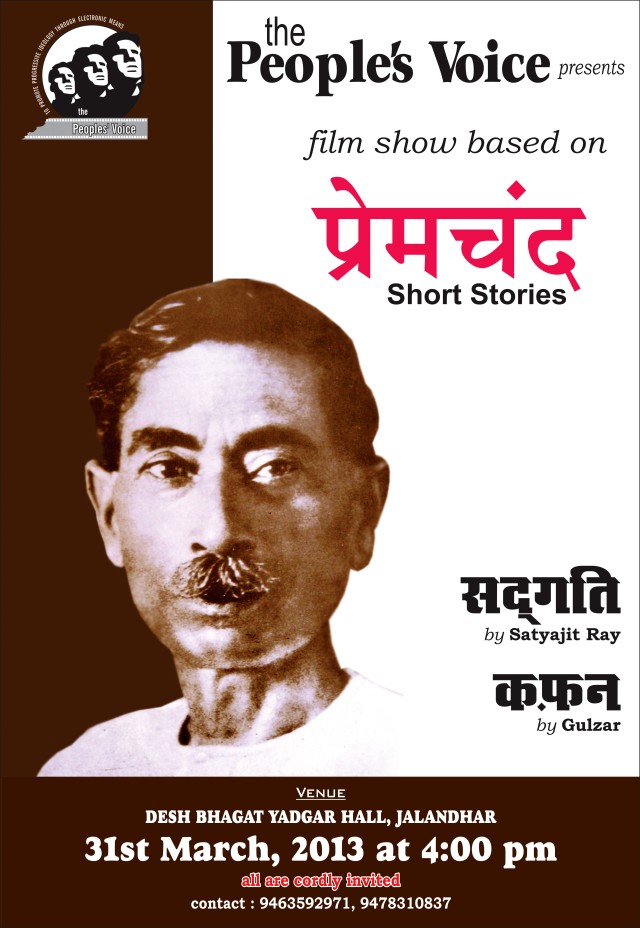Invitation
Towards Cinema of Revolution …
The People’s Voice is an organization promoting progressive ideology through electronic means. Established in the year 2001, the People’s Voice made a niche in the field of progressive art and cultural activities. In order to introduce progressive and thought provoking art, the People’s Voice organizes film shows and holds interactions with filmmakers. Its members contribute regularly in print media and other forum on issues relating to art and culture.
Apart from this the People’s Voice organizes Dalhousie Film Meet every year. The event has proven a unique experience for participants.
3rd Dalhousie Film Meet is being organized by the People’s Voice from 11-13 October, 2013 at Dalhousie. The three days affair is divided in four sessions, two sessions on 12th and one session each on 11th and 13th October. The broad details of the event are as under:
11th October, 2013
Session I : Screening of Documentary films
12th October, 2013
Session II : Presentation of Paper on Cinema
Session III : Screening of a film and interaction with its filmmaker
13th October, 2013
Session IV : Screening of a Classic film
All sessions will be followed by discussion on the films screened.
For participation in the event, Interested persons can contact at the following links:
Mobile No.9478310837
E-Mail: peoplesvoice2001@gmail.com
Note:
1. For applying, kindly mail a brief resume at the given Email ID.
2. Keeping in view of limited resources the organization is not in position to adjust each and every candidate; interested applicants may apply well in advance.
3. Kindly note that event is not directly linked with film making.
4. The boarding and lodging arrangement at Dalhousie, and transport arrangement from Jalandhar onwards will be made by the organization.
5. For participation a minimum contribution will be Rs.1500/-.
6. The amount of contribution is to be deposited with the organization, only after confirmation, on or before 15th September, 2013
7. The last date for apply is 14th, September 3, 2013 and that of withdrawal of names is 20th September, 2013 after this date the amount of contribution will not be refunded.









